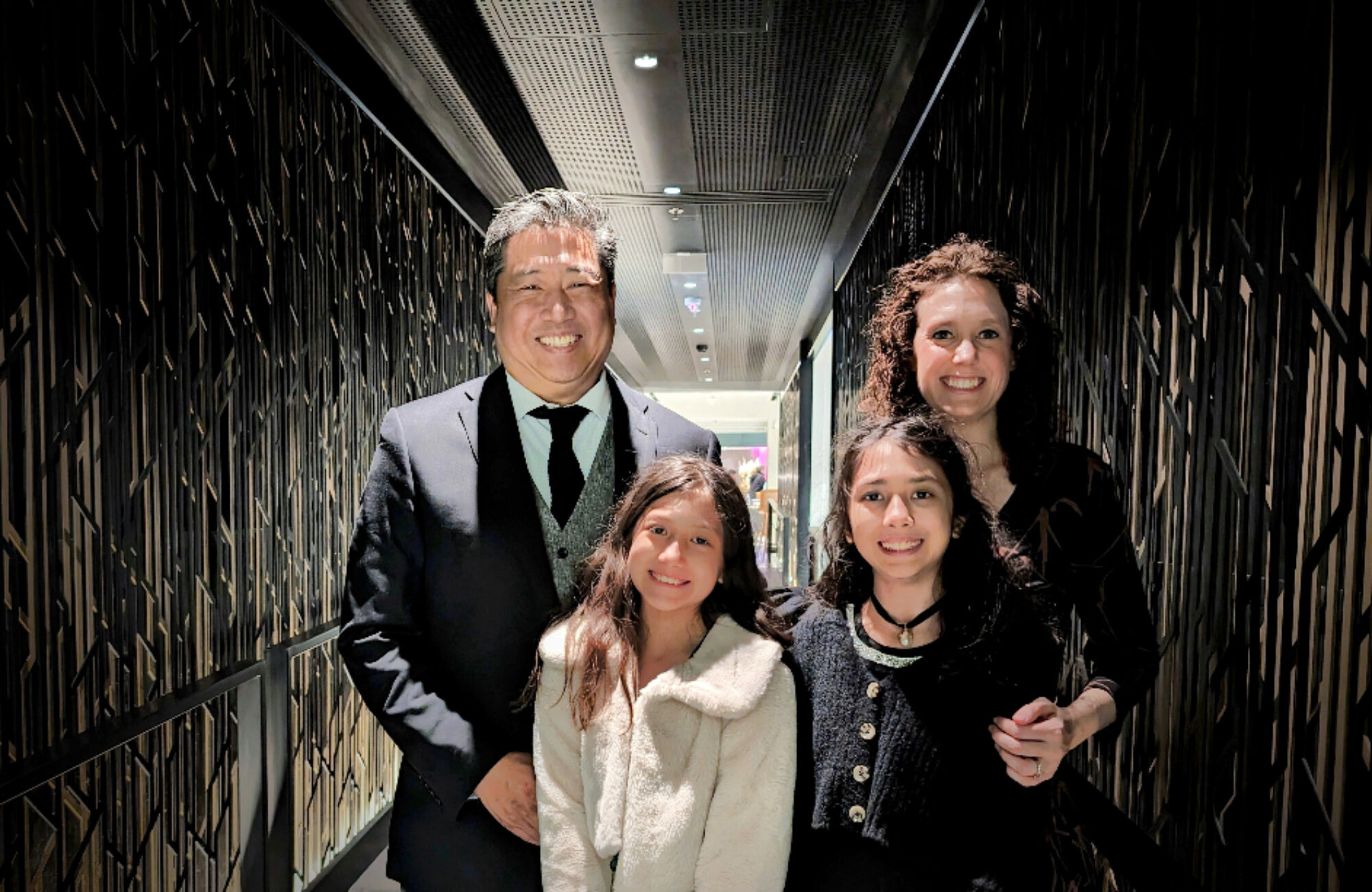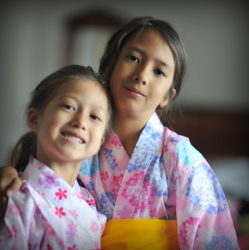Curie June 2015. Children are a source of strength. During times of anxiety or stress, it is easy to get paralyzed; this happened to Albert during racquetball a while ago (not because of the game). What got him through was “how would I want Curie or Elia to deal with things like this when they are older?” In that game, Albert beat his racquetball partner for the first time in two and a half years. So as much as we raise and take care of our kids, and as much as we have “aww” moments and moments of awe, family, and in our case kids too are truly a source of stability for us.
Curie grew a centimeter since we last measured her at three and a half and has begun actively wanting to learn to read. Books are more and more important to Curie and she will ask us to teach her to read; if we can’t at the moment, she will tell us the story by describing the pictures with her own interpretation, sometimes with very funny results.
Curie can identify about half of the alphabet on signs and on books – capital letters that is, and she can not only identify “C” “U” “R” “I” and “E” separately, but also write CURIE herself. To help her guide where she writes, Albert drew boxes for each of the letters and when Erin told the teachers they now draw boxes or her as well. In addition to writing her name she likes to copy the names of her loved ones in boxes as well. If she comes across a letter in her name, she will say “hey they have a letter __ just like me!”
She is learning the real pronunciations of words that were cute in their mispronunciation, for instance, she stopped saying “orangie” and now says “orange;” we are proud and wistful at the same time. She still says “lello” for “yellow” and at one point she stopped saying “bellela” saying “umbrella” properly for a while. When she has reverted back to “bellela,” we secretly, along with “lello” and a whole host of other cute mispronunciations, don’t want to correct her.
Like other kids her age, Curie likes to walk on top of walls and on curbs (usually holding our hand and making Elia want to do things that are quite advanced for her). She pretends to be a mother or a teacher or a scientist or a doctor. She competes with her best friends at school on who has the longest dress so that she can be the “mommy” for the day. In short, she is a healthy three year old, ready to turn four.
And then she does some precocious and funny things like saying “strange, Elia is not sleepy;” what three year old uses “strange,” to preface a sentence? She makes up full songs with rhymes, nothing sophisticated per se, but impressive nonetheless. She makes up games for us to play in the car, and asks us to “tell the story” when she overhears something she is interested in. She remembers when we last did something or where another thing happened.
There will come an age when she no longer wants to play trains on the floor or tea party with her parents anymore. There will be the day when she wants to be with her friends more than with us, and there will be the day she is ashamed we are her parents. These are all realities of raising children, so right now, when she wants to be with us the most: when she says, “who is going to look after me?” Remembers to be quiet when you are on the phone and kisses you cheek to remind you that she remembered; kisses Albert to say thank you for making dinner; stages shows to show us she can twirl, laughs hysterically with Elia and teaches her to jump; Curie goes out of her way to help Elia, and is sad when Elia doesn’t hug her – these are all simple little girl things that make this age so special – right now, it is worth being a little less ambitious, a little less successful, and a little less social, so that we can take in these moments and be with our children. As Curie declares when she gets us all together in a bed, “we are a Family!” And the world feels a little better for it.


